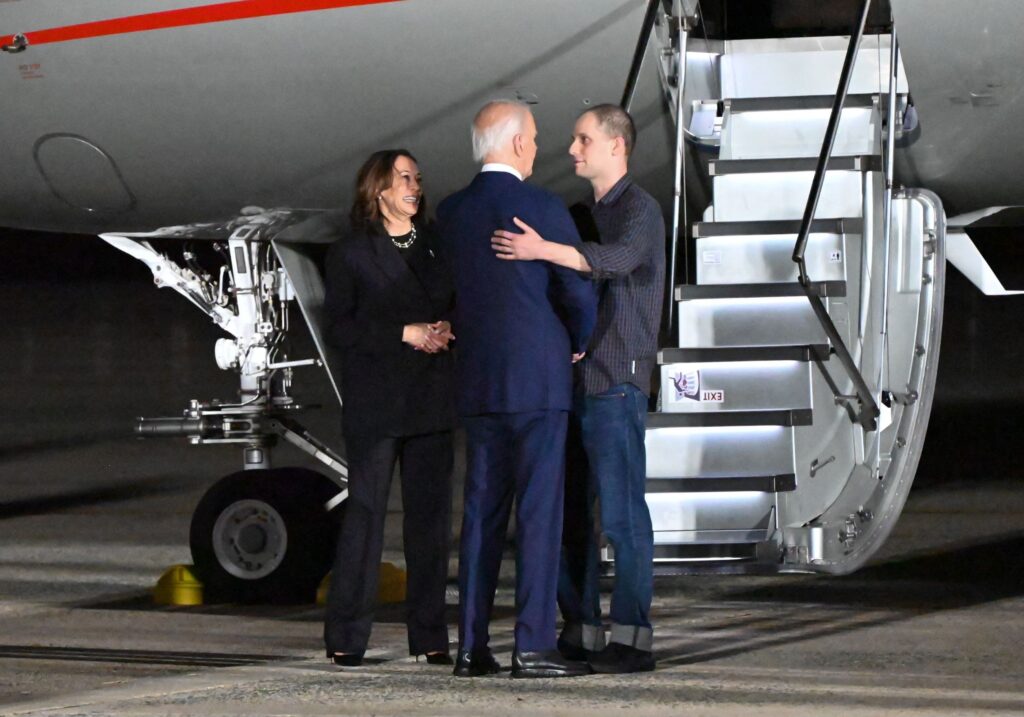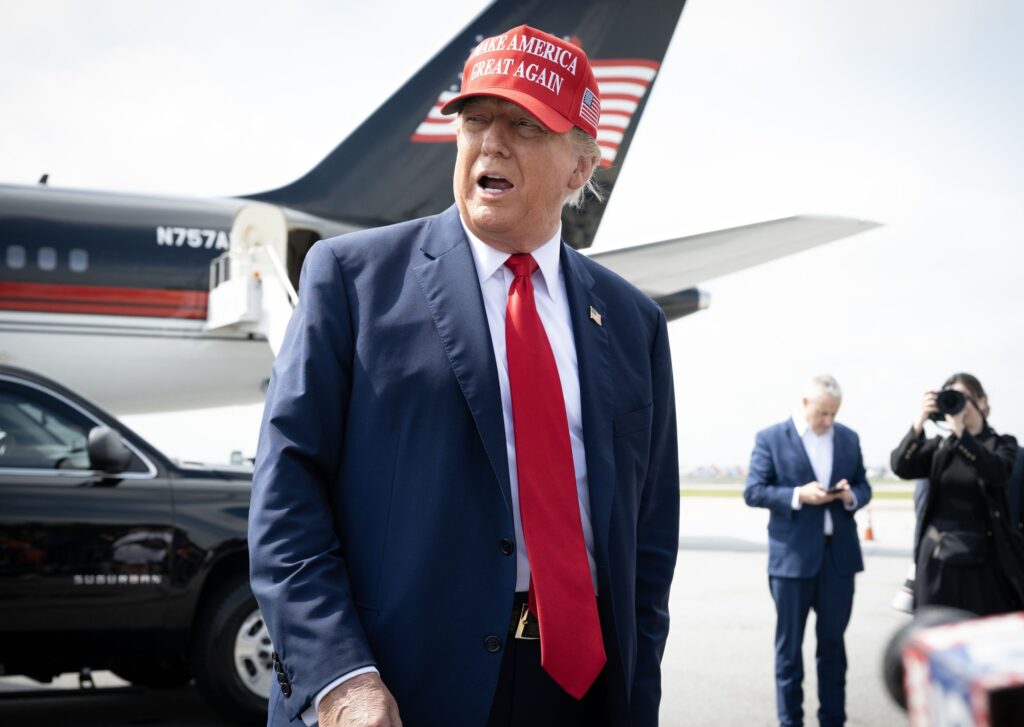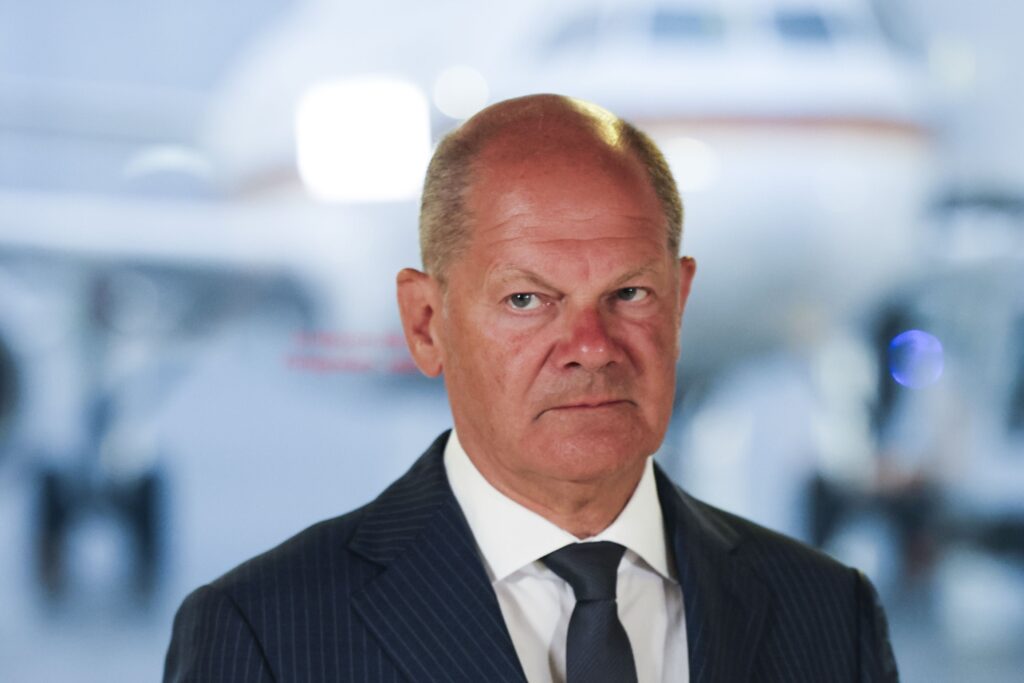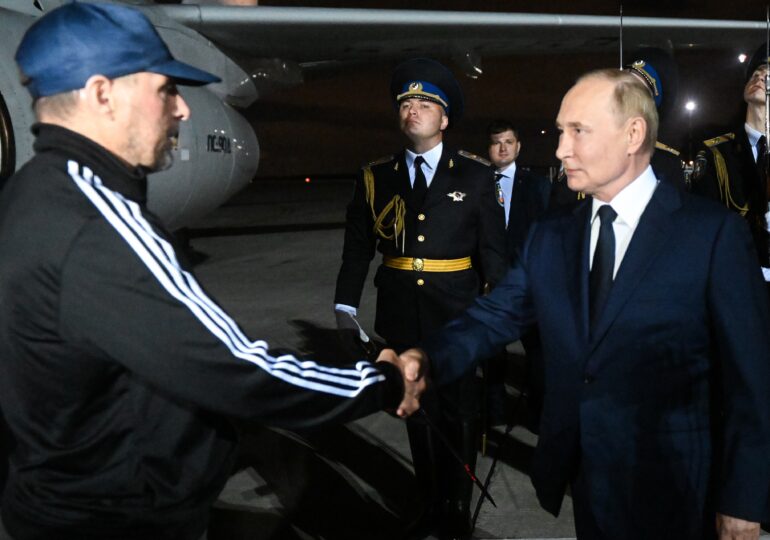Decisions and reactions of Vladimir Putin cannot be explained by legal, ethical, and moral reasoning used in democratic and pluralistic countries.
People living in open societies ask questions and seek to understand what is happening in the world, why a political leader acts in one way or another.
Many well-intentioned individuals were shocked by the fact that the Russian president went to the airport to welcome Vadim Krasikov, a hired killer, an FSB officer who killed an important Chechen dissident on German soil.
How can you congratulate a cold-blooded criminal and consider him a hero?
But Vladimir Putin no longer cares to maintain appearances. He behaves exactly as he has been trained - to annihilate his enemy, achieve his goal, and survive. In the chaos he has unleashed, there are no more nuances.
Controversies surrounding the prisoner exchange
There were voices accusing the hostage exchange negotiated through diplomatic channels between the US and Russia.
"In the hostage exchange, the Russians made a mockery of the Americans. They asked for some assassins and gave back... useful idiots and agents," wrote Costin Andrieș, a strong supporter of the Ukrainian cause, on the X social network.
This opinion is echoed by several commentators from the neighboring country, who criticized the speech of Vladimir Kara-Murza, a Russian dissident, released from prison as part of the prisoner exchange.
He stated in a press conference that for the aggression against Ukraine, the entire Russian people should not be blamed, but only Putin's political regime.

His critics argue that there is a general responsibility since the Russians do not revolt, enroll in the Kremlin's army, and kill Ukrainian soldiers defending their country on the front lines.
To shed light on this complex issue, there is a precedent in history, the Nuremberg trials, and those that followed in West Germany where the Nazis were judged and convicted to the extent that charges could be brought against them.
There should not be a general blame, but no exceptions to the rule either.
The invaders who kill in the name of Putin and assist him in his criminal actions are responsible for loss of life, war damage, and must be punished.
Complex negotiations involving multiple states
Beyond this complex debate, whose resolution is expected to mark the end of the war, what was less visible in the prisoner exchange between the US and Russia is the dynamics of the distant relationship between Donald Trump and Vladimir Putin.
"I would like to congratulate Vladimir Putin for concluding yet another big deal. ... We had 59 hostages; I never paid anything. ... Oh, they made some horrible, horrible deals. It's nice to say we got them back, but are we not setting a bad precedent?" stated Donald Trump at a campaign rally in Atlanta.

In reality, in the most complex prisoner exchange since the end of the Cold War, as characterized by the US press, 16 Americans, Germans, and Russian dissidents were released from Kremlin prisons in exchange for eight spies and Russian agents held in the West.
There is no indication that US government representatives paid money, made promises, or brokered agreements with Russia to facilitate the prisoner exchange.
Instead, Joe Biden stated that the negotiations were extremely difficult and thanked Chancellor Olaf Scholz for his support.

Vadim Krasikov, the FSB criminal agent, had been tried and sentenced to life imprisonment by German justice, serving his sentence in a local prison.
Trump boasts in campaign about his relationship with Putin
From any perspective, this exchange is a humanitarian one, releasing people wrongly convicted - a former American military accused of espionage, a journalist, and dissidents of the Putin regime.
Paul Whelan, arrested since 2018, was in Russia as a security and information director at an auto component company.
His arrest was more related to local business competition than espionage, which is widespread in Russia. Businessman Bill Browder extensively discussed this phenomenon, a former investor in Russia.
Donald Trump has always had a favorable attitude towards Vladimir Putin. He vehemently opposed US military support for Ukraine and never criticized the Russian dictator.
Prior to this prisoner exchange, on numerous occasions, the former US president boasted that upon his return to the White House, he would speak with Putin and release all American citizens imprisoned in Russia.
Trump heavily promoted his privileged relationship with Putin in the electoral campaign to announce that the war in Ukraine would end with a simple phone call to Moscow and the hostages would return home.
Putin no longer believes in Trump's chances
The fact that the challenging prisoner exchange operation took place two weeks after Joe Biden announced he would not run for re-election, and Kamala Harris took his place in the race, is a strong indication that hopes for Donald Trump's return to the White House have faded at the Kremlin.
Our alliance with other states makes Americans safer. I want to be clear: I will not stop working until every American detained unjustly or held hostage anywhere in the world returns home, alongside their family
Joe Biden, statement on the release of hostages from Russia
Putin, a former KGB agent, cynical and pragmatic, considered it more advantageous for him and his allies to negotiate and reach an agreement with the Democratic administration rather than with Trump. This was very bad news for the Republican leader, thus explaining his public reaction.
This does not mean that Putin reads the stars and knows who will become the US president in November, but in the Russian president's view, Trump now has much fewer chances than before Biden's withdrawal.
Putin may be mistaken. He is surrounded by conspiracy theorists, agents, and political stooges who play to his tune and tell him only what he wants to hear, but that did not stop him from betting against his "friend" from America.
Alongside the electoral implications of the prisoner exchange, an event that provided Biden and Harris the opportunity to score points in front of the American public, presenting themselves as leaders who offer solutions rather than just promises, the event also signifies an important shift in how Russia has begun to relate to the US and its allies.

